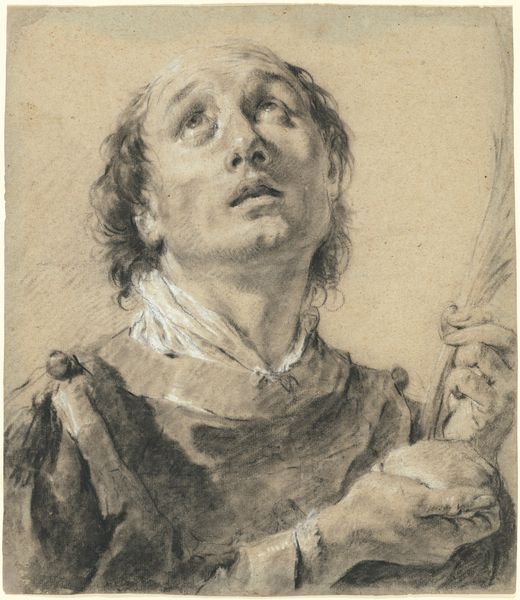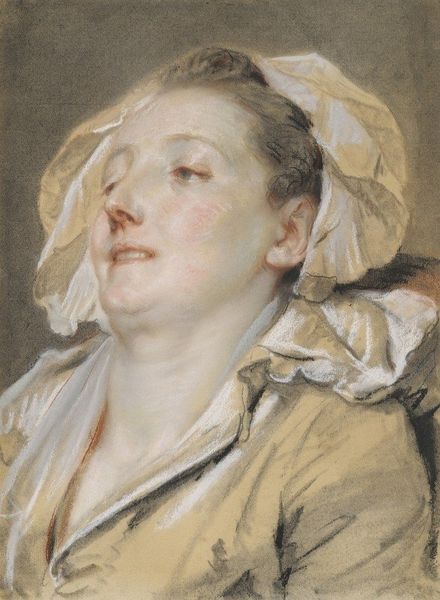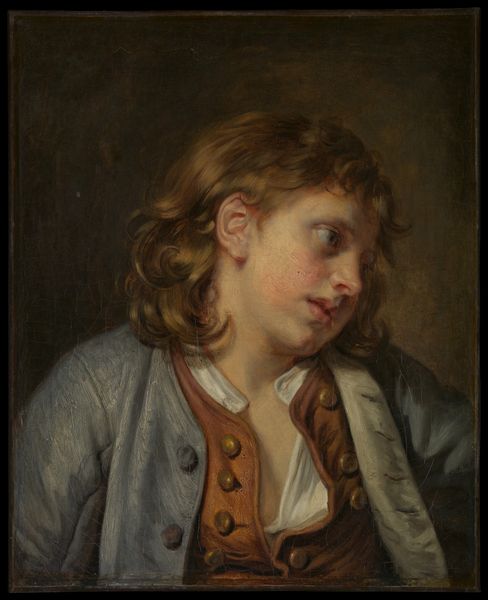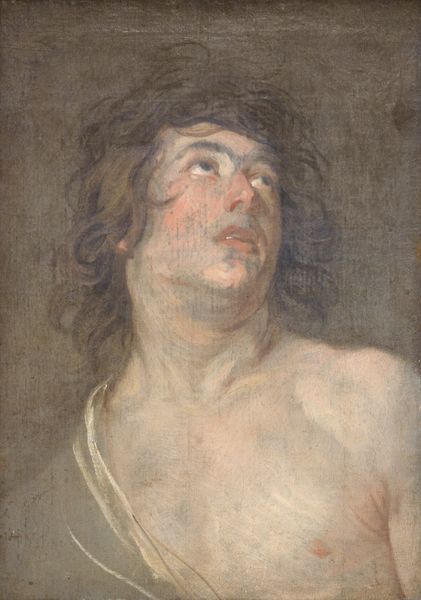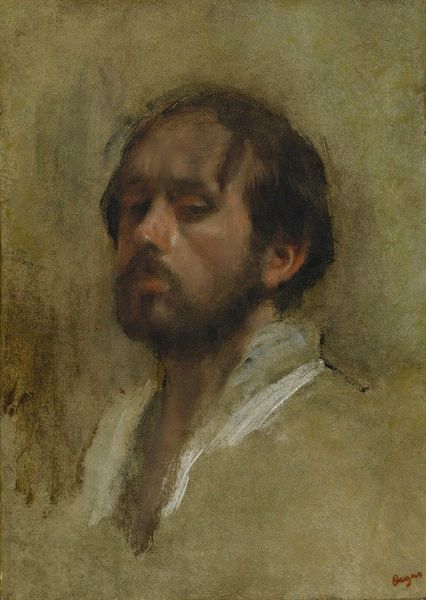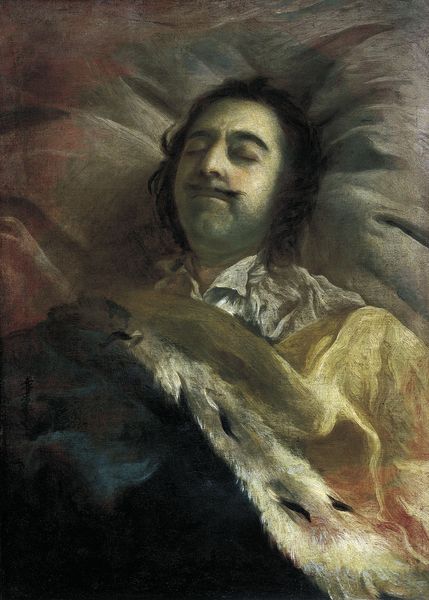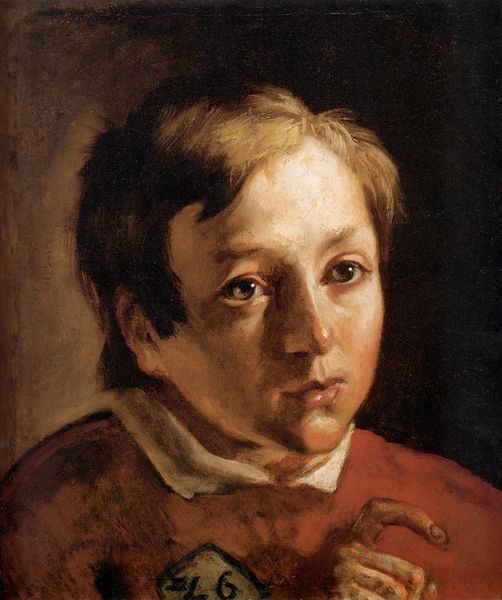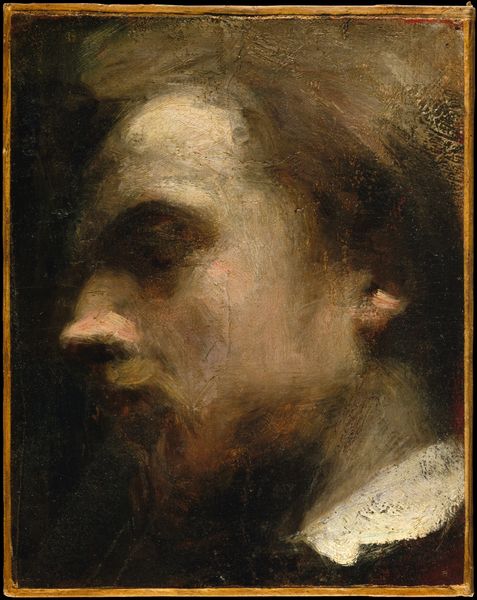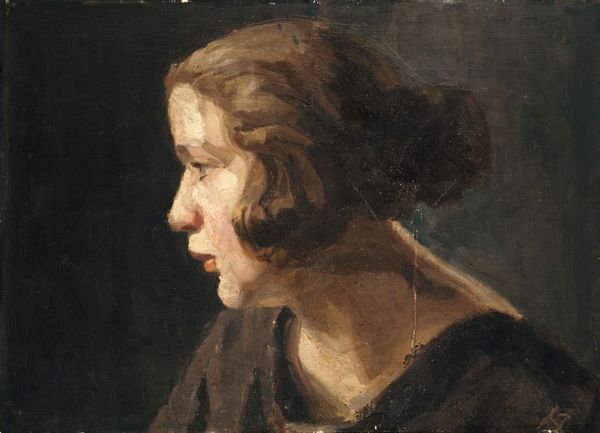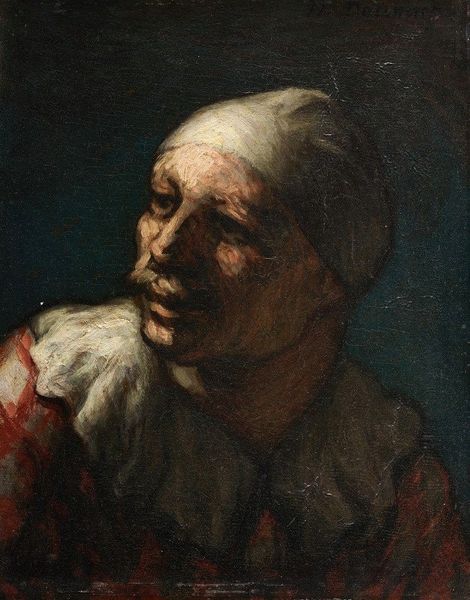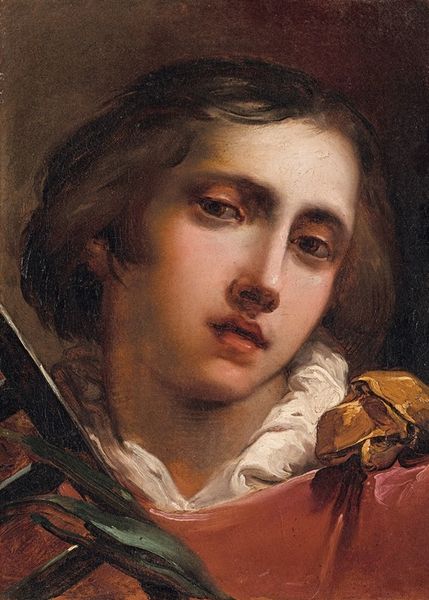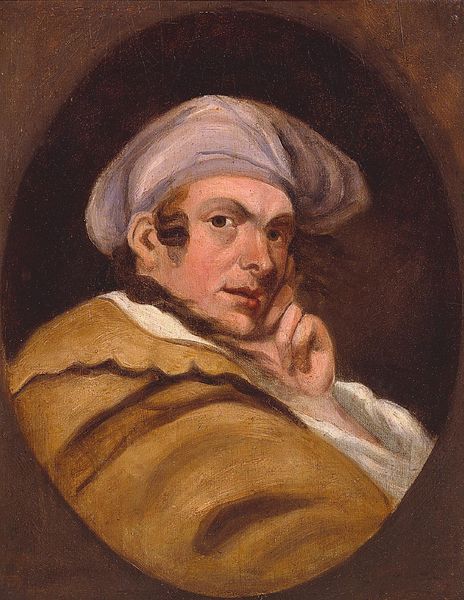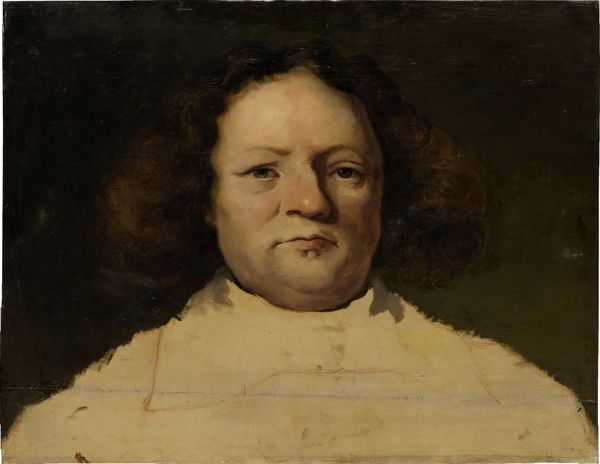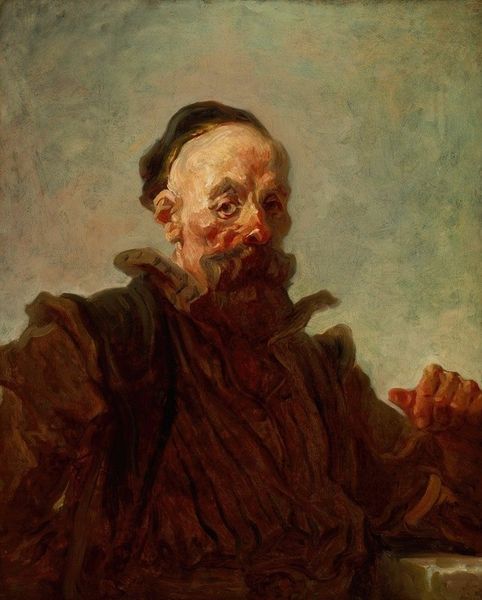
oil-paint
#
portrait
#
baroque
#
oil-paint
#
oil painting
#
portrait reference
#
romanticism
#
portrait art
Copyright: Public domain
Claude-Joseph Vernet painted this portrait of Simon-Mathurin Lantara, another artist, during the 18th century in France. Look at Lantara’s upward gaze: it hints at the romantic idea of the artist as someone touched by divine inspiration. But what was the social standing of artists at that time? The French Royal Academy of Painting and Sculpture, an institution heavily influenced by the monarchy, dictated artistic taste and provided patronage. Vernet, a member of the Academy, achieved fame and financial success by catering to the elite. Lantara, on the other hand, struggled with poverty. While Vernet's portrait suggests a shared artistic identity, it also highlights the economic disparities within the art world. His disheveled appearance and worn clothing hint at the harsh realities faced by many artists outside the Academy's favor. To better understand this work, we can consult archives, letters, and exhibition records. We can analyze the dynamics of artistic institutions and the economic realities that shaped the lives and careers of artists like Lantara. Art's meaning is inseparable from its social and institutional context.
Comments
No comments
Be the first to comment and join the conversation on the ultimate creative platform.
